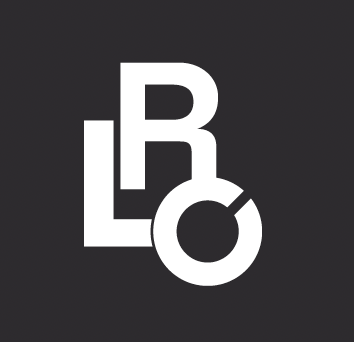99 Ways to “do” Leadership
Well, not 99, 7 actually!
Using our RLC 7 Daily Leadership Principles, we share how a framework of principles can personalise your style and create the skill to be the best leader you can be. Have you ever been asked what leadership is? At RLC, we have been asked this many times in workshops and with Leadership teams worldwide, and we are amazed at some of the answers we collect. Here are a few of the worst ones:
• Being the boss
• Telling others what to do
• Directing others to my way of thinking
• Being a great speaker
• Showing how visionary I am
• Being the biggest and brightest in any room I am in
• Others following me
• Demanding and coercing others
• Selling the dream and making sure everyone does their bit
We don't believe it's any of these things. We know from our years of experience coaching leadership that we still have a global leadership deficit right now. There are many super leaders too, yet we must not dismiss we experience more poor leader examples than great ones.
Understanding poor leadership
Understanding poor leadership allows us to start coaching how to improve, modify, develop, and build the skill needed to be a great leader.
We see poor leadership as-
Not being progressive
Reactive style only
Lack of life balance for others, not themselves
Inequality
Poor language
Not adapting to the modern world or the challenges they must overcome
Presenting themselves as a stereotypical construct of what they “think” leadership is,
Lack of self-awareness
Poor listening skills
Biased perspectives and one-way thinking
Stopped learning and call themselves an expert
Ignores recognition
Tells others to be more confident
Believes shouting gets respect
Undermines others
Money first focus (commercials are critical to a business, yet money is part of the challenge and opportunity, not all of it)
Unwilling to change to enhance the world around them
Poor leadership is many things; we ask you to add your own experiences to the list and if assessing your leadership, have you exhibited any of the examples listed? If so, ask yourself why? What was the outcome? How did you choose to recognise it, or did someone else? Do you still demonstrate poor actions today or repeat them- what is stopping you from learning new leadership skills?
Assessing your leadership
Understanding that leadership starts with self-first is essential to becoming a great leader. This has become more important than ever before in the modern business world. Let’s start with some self-assessment; here's a few questions on your leadership:
What do you do to be a great leader?
What don’t you do right now as a leader- why not?
Are you intentional with your leadership? If so, how?
How do you know you are a good/ bad leader?
What one thing do you do that best demonstrates your leadership skills?
What feedback have you gathered from others about your leadership style? How did/do you deal with feedback?
List great leaders you have worked with- what are their commonalities? Do you demonstrate any of these?
List poor leaders you have worked with- what are their commonalities? Do you display any of these?
If you had to choose one leadership skill to develop, what is it and why?
We must ask ourselves, how can I be the best leader I can be today?
Are you curious and have a desire to improve your leadership? In that case, answering these questions will start an exploration of self, style, opportunity, and improvement you can make for yourself as a leader to benefit those you lead, your business and people.
Leadership is a skill.
The Covid19 pandemic years have challenged many, and we now face organisational fatigue at the start of the new year. Reflect on previous years -have you ever started a brand-new year where the teams report more significant increases in fatigue, anxiety, worry, emotional trauma and many more things? Considering how you may be feeling isn’t enough as a leader (Read our hybrid working blog and see the data about leaders and teams differing in feeling status)
As a global community, we are experiencing significant challenges for the first time since the last catastrophe, which was war. This common ground has left in its wake all sorts of things. Right now, though, at the start of 2022, it has left fatigue all around us.
Our people need leaders to stand up and be better. To lead those around them. We need to all stop and look at how we are leading, how we are coaching, how we are working with our people- are we placing their wellbeing as high on our to-do list as performance, production, and other vital metrics. We genuinely believe that you can become a great leader; honing the skills necessary to be a great leader are ones that require most of all consistency.
Developing leadership skills
We have 7 Daily Leadership Principles at RLC. They were designed through in-depth research, years of experience serving clients of all shapes and sizes. They provide for us today a set of starting points; they will show you what you could be doing with your leadership at any moment.
RLC 7 Daily Leadership Principles
-
Ever asked someone to do something, not a task, maybe a project or process, they look at you unconvinced and disinterested. The unspoken words in this exchange displayed in the form of dis-belief. Meaning they simply do not believe you, let alone the fact you have asked. Because they have identified that you are asking them to do something you do not even do yourself. This isn’t the adage of cleaning the toilets so that my team do. This is about exhibiting the right behaviours, language, being what you expect others to be
TOP TIP:
Want to influence better in a situation like this, model, the leadership required, show you can do it, or understand it – likely outcome is, they would accept and most likely take on the things you talk about willingly.Description text goes here
-
Having a story is not merely about having a vision. A vision is the leader's responsibility and the Leadership Team. To make sure you all know how to tell the story in two specific ways.
Firstly, in the way that matches the audience you are talking to
Secondly, in chunks with consistency, i.e., Chunks being 30 seconds, a statement, 60 seconds, 90 seconds or a 3-minute story.
TOP TIP
Make sure that message is clear and relevant to roles and responsibilities too. For example, does every team member, employee understand the story in the same way? Do you link the day-to-day business operations to the story and purpose at its heart?
-
When decisions are made that are several layers of the organisational structure away from the decision moment, they seldom work.
An example is your team member is serving the customer. Has the decision made affected the sale? Made it difficult for the team member? Stopped/slowed down the sale? Impeded the sale? Impacted negatively on the customer experience? Yes, or no?
Can decisions be made now within a set of boundaries? In many large companies, there is a process, red-tape or barriers creating blocks for the individual's ability to do the role you employ them for is impaired.
Enabling your people to act means spending time, implementing decision-making at the point of contact with your clients or customers, enabling great experiences.
Top Tip
Simply reverse the decision and the touchpoint it ends with – start the decision from there and see the impact.
-
In leadership, if you focus on this rule, your people will connect and respect you more every day. Why? It is because you are pro-actively putting 'making their job easier at the top of your daily focus.
Top Tip
See your process from each person's perspective, not yours. Review your process; where are the obstacles right now. What blocks your people from delivering the best product or service? What stops your customer from buying your product or service?
-
Many of us notice things going wrong before we see things going right?
We are taught from a young age to focus on the things we get wrong. Example: we are taking a spelling test at school. There are ten words to spell, the test gets marked. We then focus on the amount we got wrong rather than celebrating the ones we get right.
Ken Blanchard wrote 'Catch people doing things right.
Our ability to see the good takes practice—daily practice at that.
We use SoulFood at RLC, and it follows three simple rules. It must be:
• Genuine
• Positive
• Specific
Encouraging people takes practice; so many things get in the way each day, operationally, tasks, performance expectations, and more. However, great leaders take the time to notice the good because it inspires hope, beliefs, faith and harnesses your organisation's culture.
Top Tip
When you deliver SoulFood to an individual, we encourage people to 'Write it, say it, give it. That means you write it down first, ask the person for their attention, tell it to them, and then give them what you have written down to keep.
-
It is frustrating to see talented people leave their organisation primarily due to the disconnect between the story sold about vision and culture and the execution gap when working with our largest clients.
Each of these is a vital step we can take to be intentional about our leadership.
Be intentional about your recruitment.
Recruit to the DNA of the person your organisation needs
Match it to culture, beliefs
Values and behaviours
Skills and competency
Be intentional about reward systems.
Reward the right things
Things that get measured and rewarded appropriately get done
Align salaries
Be intentional about the development.
Commit to the people reviews, wellbeing chats, support tools and more
Support your team with coaching
Support your team with training
Take the time to improve mindset and skills
Invest in development
Stop doing engagement surveys and believing what you read. People retention is in the culture- toxic culture can still create a positive engagement survey (done by fear). If people aren't leaving, ask them why. If people are leaving, ask them why. Invest in your people; coaching, development, and nurturing talent means you invest in them. They invest their time and skill with you.
Top Tip
Ask people what they want instead of what you think they want. Candour in the workplace is critical in attracting, retaining, and growing talent.
-
When we researched rule 7, we found no business said, write a plan, always had one. In 2018 RLC saw that of all the effective programs being run. [7 extensive corporate programs / Small Business Programs and Coaching] there was a problem with execution.
•Execution is about the plans you have made – execute them and learn
•It is about people commitment – show up in the meetings you book
•It is about execution to best self
•It is up to you
TOP TIP
Take action
Move forward consistently
Review, reflect and reset regularly
Each leadership principle is stretching, designed to help you be intentional with your leadership. To do the things that make the difference.
As we move into a new way of working with over 15% of the working population going to be fully remote, up to 75% of people transitioning to hybrid working, the change affects everyone.
RLC 7 daily principles with wellbeing and mindfulness.
WELLBEING LINK PRINCIPLE 1: If you are modelling strength and not showing vulnerability, empathy, or compassion, you may find that people will mirror what you are modelling.
TIP: Be honest and transparent about where you are at right now. The small business arena does this better than anyone else. So be candid about what and how you are feeling. You will notice that others are more likely to do the same if you do it first.
WELLBEING LINK PRINCIPLE 2: Our ability to recognise the energy levels of the people we lead will become truly important this year. The fuel gauges of our minds have been challenged immensely. The Technique we use is RLC Fuel Gauges
TIP: The more you make available, the more time for our people to stop, reflect, consider, the more you will find they will remain connected to the organisation's mission.
WELLBEING LINK PRINCIPLE 3: When people feel under pressure, are under extreme anxiety or have built up levels of stress that are too high, creating space for people to deal with this is vital.
TIP: The action here is to seek help. It is easier to do this if you have the correct support tools around you and the teams. Stop and assess what else you could do to support the teams you lead?
WELLBEING LINK: PRINCIPLE 4 Wellbeing and Mindfulness may still seem an obstacle for many. It is a taboo subject that makes it a conversation that people will choose not to have.
TIP: Take the time to connect with our people and make space for conversation.
WELLBEING LINK PRINCIPLE 5: The body has three critical functions it relies upon to work: Breathing, the Brain and the Heart. The heart here impacts many things about our people. Their beliefs, attitudes, outlook, and what they expect to happen.
TIP: Take the time to encourage the team you lead. Spend time having candid conversations about the challenges you are facing. Inspire hope through story, action, SoulFood and successes..
WELLBEING LINK PRINCIPLE 6: If we know that people will have fatigue levels that have compounded throughout the pandemic. Provide ways to keep your people engaged with the mission you are on.
TIP: Support one-to-one and regular conversations will help keep our people close. At RLC, we work to a framework that prioritises culture, beliefs, and behaviour alongside a 24-month track. Everyday conversations about this keep people in a safe space to drive their growth and progress.
WELLBEING LINK PRINCIPLE 7: Have an execution plan, have a mindfulness plan, for wellbeing and be ready to support your team and peers with the help needed.
TIP: Include your team in the process of working out what help is needed and start today. Reminding people that rest is rest, recovery is active movement, and our nutrition will affect us for good or bad. Our beliefs and self-esteem need encouragement – the better and more open they will be too good stories about what will be required.
Leadership is connection
A considerable part of outstanding leadership is the ability to remain connected to all business needs from team to customer, from each division to product and service. A simple way to connect is to talk and listen candidly and share vulnerability (Principle 1 modelling the behaviour you want from others yourself first). At RLC, we coach a method called iCHAT, a simple short discussion focusing on asking two core questions.
Are you okay?
Is there anything you need me to alter, adapt or change to support you better?
iCHAT
iCHAT is having a clear conversation with the structure to support.
It may seem odd creating a method to have a chat, but the lack of connection makes poor decision making and therefore impacts results. Being able to connect to all levels of the business teams means you can build a broad focus awareness of reality and not just perception. Finding out what is really happening versus what you think is happening.
Being prepared to listen, stop talking and respond to the replies is a crucial part of the connection and being a leader means this skill is necessary.




There is one thing about leadership we all know to be considered correct. It must be practised daily.
This blog's goal and objective are to give you some leadership principles that would deliver leadership intentionality if you apply them consistently.
Are you being intentional with your leadership?
The answer to the question will be found in the choices you make daily.
As you work through these leadership principles, find ways to add incremental improvement to your leadership one thing at a time. If you need help with any of the areas above, reach out to RLC direct.
Many of our clients worldwide apply these rules through our Best Version Business Framework. This framework helps you map out the future, even in uncertain times. It builds your culture and lays out the foundations to enable and develop your business.
Or talk/connect with us on how we can help your leadership info@rlc-global.com.








